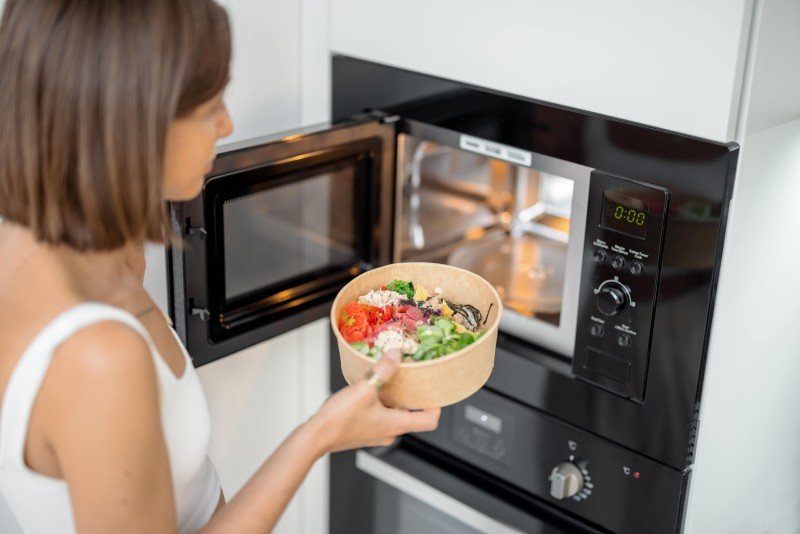The Comprehensive Guide to Sales Ovens: Understanding Their Importance, Types, and Best Practices
Sales ovens, a classification of industrial cooking devices, are essential players in the culinary and foodservice market. These appliances, designed to prepare food in large amounts efficiently, are necessary in dining establishments, catering services, and other food facilities. This short article delves into the value of sales ovens, their types, and best practices for choosing and utilizing them effectively.
What Are Sales Ovens?
Sales ovens, broadly defined, are cooking devices used mostly in business kitchen areas to cook, bake, or heat various food items at scale. Their style allows them to deal with higher volume cooking compared to standard domestic ovens. Given the nature of food service, sales ovens frequently integrate advanced innovations that promote speed, effectiveness, and even cooking.
Importance of Sales Ovens in the Food Industry
Sales ovens play an essential function in food production for many reasons:
- Efficiency: Sales ovens can cook food quicker and equally than traditional ovens, permitting chefs to prepare meals in less time.
- Consistency: With accurate temperature controls, sales ovens guarantee that the food is prepared equally each time, maintaining quality throughout countless portions.
- Versatility: Many sales ovens can deal with various cooking techniques including baking, roasting, broiling, and even steaming, making them appropriate for diverse menus.
- Energy Savings: Modern sales ovens are often created to be energy-efficient, decreasing functional costs for businesses.
Kinds Of Sales Ovens
The marketplace uses a range of sales ovens, each fit for specific cooking requirements and types of food. Here are the most typical types:
| Type of Oven | Description | Best For |
|---|---|---|
| Convection Ovens | Use a fan to flow hot air, guaranteeing even cooking. | Baking and roasting items. |
| Combi-Ovens | A mix of convection and steam cooking, providing flexibility in cooking methods. | Diverse menus requiring steaming and baking. |
| Conveyor Ovens | Utilize a moving belt to continuously cook food, suitable for high-volume operations. | Quick food and pizza. |
| Deck Ovens | Feature different compartments (decks) that can be separately controlled, using high efficiency. | Craftsmen bread and pastries. |
| Rotisserie Ovens | Developed to gradually roast meat on a spit, offering tender and juicy results. | Roasted meats. |
Choosing the Right Sales Oven
Picking the suitable sales oven for a particular service requires factor to consider of several factors:
- Volume Needs: Assess the volume of food that requires to be prepared. Greater volume suggests choosing conveyor or combi-ovens.
- Menu Diversity: Understanding what type of meals will be cooked can assist the selection procedure. For instance, a bakeshop might require a deck oven, while a restaurant might gain from a convection oven.
- Area Availability: Measure kitchen space to guarantee the ovens fit correctly and have actually required ventilation.
- Budget: Commercial ovens can differ substantially in cost, so establish a budget that thinks about long-lasting operational savings.
- Energy Efficiency: Opt for ovens that have energy scores to keep utility costs manageable.
Best Practices for Using Sales Ovens
Effectively operating a sales oven includes more than basic usage. Here are some best practices to bear in mind:
- Regular Maintenance: Schedule regular maintenance to clean and inspect the functionality of the oven. This makes sure longevity and performance.
- Pre-heating: Always preheat the oven to the wanted temperature before putting food inside for consistent cooking results.
- Utilize Thermometers: For precision, utilize an oven thermometer to guarantee that temperatures stay constant, particularly for baking.
- Follow Cooking Times: Adhere to advised cooking times based upon the kind of food being prepared. Adjustments might be required for different ovens.
- Avoid Overcrowding: Ensure adequate area around food items in the oven to enable appropriate air flow.
The Future of Sales Ovens
As technology advances, so do the abilities of sales ovens. Innovations such as smart innovation, energy-efficient designs, and enhanced security functions are becoming more prominent. These advancements guarantee to boost cooking efficiency while likewise fulfilling sustainability goals.
FAQs about Sales Ovens
Q1: How do I tidy my sales oven?
A: Regular cleaning involves eliminating any food debris, cleaning down surfaces with non-corrosive cleaners, and following particular cleansing suggestions from the manufacturer.
Q2: What's the life expectancy of a business oven?
A: Typically, a properly maintained commercial oven can last anywhere from 10 to 20 years, depending on usage and maintenance.
Q3: Can sales ovens be used for baking?
A: Yes, numerous types of sales ovens, particularly convection and deck ovens, are particularly designed for baking a variety of products.
Q4: Are there energy-efficient alternatives for sales ovens?
A: Yes, a number of manufacturers provide energy-efficient designs that minimize energy intake without compromising efficiency.
Q5: How typically should I carry out maintenance on my sales oven?
A: It's a good idea to carry out regular maintenance checks monthly or quarter, depending on use levels. Additionally, web link must occur a minimum of annually.
Sales ovens are important in the modern culinary landscape. Their ability to cook large amounts of food efficiently makes them necessary for dining establishments, catering services, and other food facilities. By comprehending the different types, picking the right oven, and sticking to best practices, food service businesses can optimize their cooking procedures, boost their offerings, and eventually thrill their clients with impressive culinary productions.

